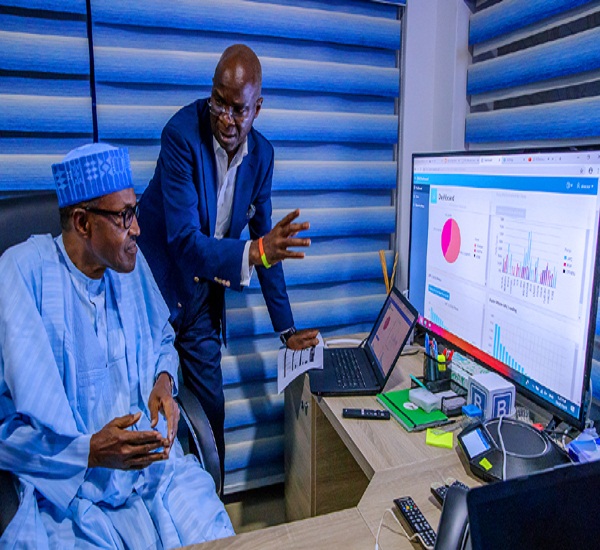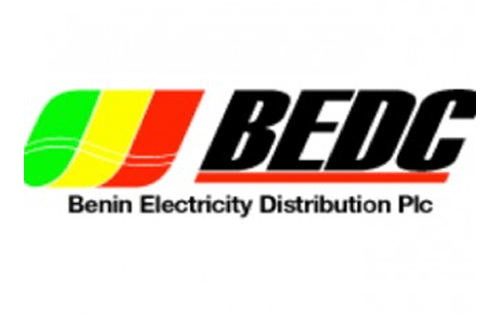THE Electricity Generation Companies, GENCOs, have identified inaccurate data, government interference, and inefficiency as major factors, currently affecting power supply in the country.
In a report, the GENCOs explained that the power sector is in dire need of total overhauling. It stated: “From research, developed nations differ from underdeveloped (third world) countries of the world majorly on data.”
The report stated: “Investments for the growth of the generation sub-sector did not depend on the returns from the distribution sub-sector.
Investments to improve data quality and adequacy in all sub-sectors of the industry, with the priority being the distribution sub-sector for obvious reasons will solve a number of issues inhibiting the growth of the sector, especially the inability of the DISCOs to make capital investments. “Government’s intervention through the Central Bank of Nigeria (CBN) to continue market interventions without seeking first a better understanding of the market through bankable data will be an effort in futility.”
The report stated that the power sectors’ development was tied to the demand chain, adding that: “The determinant of whether power generation should increase or not, is the demand side of it. Electricity supply is closely tied to demand and facilitated through a pool where the output from all generators are aggregated and scheduled to meet demand.
“This is because the storage mechanism for electricity generated is in view. Hence supply must vary dynamically with changing demand. Statistics from the Nigerian system operator on load demand over the last three months average over 22,000MW. This means that there is a suppressed demand of over 17,000MW compared to what is being generated today.
This could potentially escalate when there is stability of supply and high ticket consumers who are self-generating decide to join up. How do we plug this gap?” Explaining the appalling power situation, the report stated: “Currently Nigeria has installed capacity that is over 13,000MW, available generation that is over 7,500MW and average generation that is about 4,000MW.
On October 22nd 2018, average energy sent out was 3,854MWh/hour peak Generation attained on October 22nd, 2018 – 4,729MW. This shows low/minimal optimization of generation capacity due to constraints on the transmission and distribution networks. Without these constraints, additional 3,000MW could be made available to customers, and also serve as an incentive for GENCOs to recover the unavailable capacity of over 5,000MW.”
Market potential
The report further stated that the electricity market has the potential to absorb significant investments and provide rewarding returns on those investments if the market is allowed to run on a competitive basis with little or no government interference.
It stated: “The lack of sanctity of contracts has resulted in huge debt burden on the GENCOs who are never fully paid for power generated and supplied to the market. In addition to the points above, it is imperative to note, that: “Successor/Legacy GENCOs, signed a performance agreement with the Bureau of Public Enterprises (BPE) with performance targets in recovering capacity.
“All Generation companies signed Power Purchase Agreement (PPA) with the Nigerian Bulk Electricity Trading Plc or Bulk Traders (NBET) with associated obligations on contracted quantities. Hence, the market should be very much aware of these obligations so as to enable performance of all parties.”
Investing on transmission
The report added: “To optimize the current generation capacity, planning becomes pivotal, taking into cognizance the gestation period for power development. “There is a need for massive investment in transmission and distribution networks in the country. Power GENCOs have the capacity to increase their output in the near term.
“However, an increase in power generation without a resultant increase in TCN’s wheeling capacity and improved distribution infrastructures will continue to lead to stranded power generation. Nigeria has about 13,000, MW, of installed capacity, a transmission capacity of about 5,000MW and distribution that hovers between 3,500 and 4,200MW.” It stated: “A further challenge is the constant request from the System Operator to make the GENCO power plants operate at base load contrary to their design to operate optimally and efficiently at base load. Operations of these turbines far away from their base loads imply a reduction in efficiency or in other words an increase in consumption of gas( for the thermal) by as much as 15-20percent!, a cost not captured or contemplated by MYTO.
“Electricity generating companies are faced with: financial, operational, construction, market, macroeconomic, contract and regulatory risks in the NESI today. “GENCOs are caught in the middle of a weak transmission network and a poor commercial market structure. If answers can be given to GENCOs most pressing/pertinent questions such as; can we be fully dispatched? Can we get gas? Who is paying for the power? What is the clear line of sight for collection and remittance? Then, power supply issues of the nation will be a thing of the past.”
Transmission
Meanwhile,TCN has disclosed that it has completed the installation and commissioning into service, one brand new 300MVA 330/132/33kV power transformer in its Alaoji Transmission Substation, Aba in Abia State.
The company also stated that it has transported a brand new 150MVA, 330/132/33kV power transformer from the port to Kumbotso Transmission Substation in Kano, to replace one of the four (4) 150MVA transformers taken out for repairs. The General Manager, Public Affairs, TCN, Mrs. Ndidi Mbah, stated that the brand new 300MVA power transformer, energised on February 12th, 2019 in its Alaoji Transmission Substation, has increased the station’s installed capacity from 450MVA to 750MVA which makes it the biggest substation in the southern part of the country and has also made the station consistent with redundancy requirement of N-1. She said: “With this development, TCN has increased its capacity to supply Enugu Distribution Company for onward supply to particularly Abia North (Ohafia, Arochukwu, Item, Abriba) Imo State (Okigwe, Arondi-izuogu), parts of Ebonyi and Rivers State.”
Experts
Commenting on the situation, Mr Muda Yusuf, Director-General, Lagos Chamber of Commerce and Industry (LCCI), said the provision of stable power remains at the heart of ease of doing business in the country, as power challenge impacts adversely on productivity. He said: “Reports from various companies reveal that they spend as much as 20-25 per cent of their total operating cost on the provision of alternative power and payment to DISCOs.
“This is not sustainable for most businesses and constitutes a threat to growth and development of not just businesses but also the economy.” Mr. Frank Jacobs, President, Manufacturers Association of Nigeria, MAN, had said: “It is possible to gauge the loss suffered by manufacturers, arising from paucity of electricity supply and high cost of alternative energy source. Capacity utilization in the sector has barely been above 50 per cent.
“This implies that production has been sub-optimal; production value in the sector was estimated at N8.38 trillion in 2016. Another way of measuring the loss to manufacturers, as a result of the challenges of electricity supply, is by looking at the huge cost of alternative energy which was estimated at N129.95 billion in 2016.”
The way forward
The Minister of Power; Works and Housing, Babatunde Fashola, had said the sector needs substantial local and foreign investment. According to Fashola, although the country has expended what may appear sizeable, the money so far spent was inadequate to address the current challenges.
He said: “When I hear that we have spent a lot of money on the power sector, I say that we haven’t spent enough money and that is why we are still talking about the need for investments to come in. “Yes, what we have spent may look sizeable but it doesn’t provide enough power for our consumption as a nation.”
Source: Vanguard
Total Views: 287 ,
0
0











Hello, blame you in regard to tidings! I repost in Facebook
how safe is it to order viagra online levitra for sale online buy soft viagra